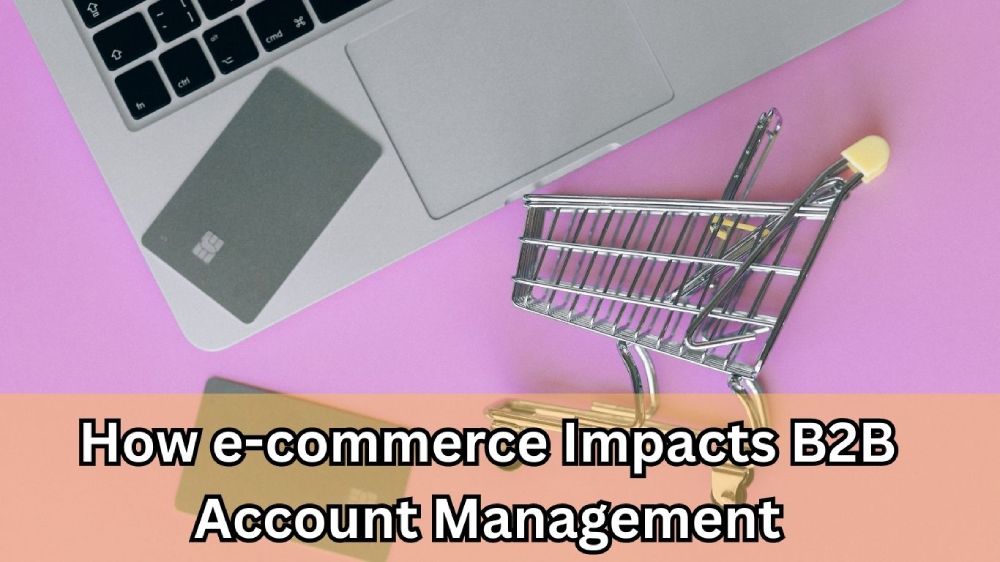How e-commerce Impacts B2B Account Management

In the current digital era, e-commerce has become an indispensable part of the daily lives of people as well as businesses. By definition, e-commerce is the buying and selling of goods and services over the internet. In the past, businesses had to rely on traditional methods of trade, such as direct sales and physical stores, to meet their customers’ needs. However, with the advent of e-commerce, businesses have been able to expand their customer base as well as reach new markets.
The growing popularity of e-commerce has also had a major impact on the way businesses manage their accounts. B2B account management has seen a massive shift towards the use of e-commerce platforms, such as Amazon, Flipkart and Meesho, to manage their accounts. This article will discuss how e-commerce has impacted B2B account management, and what businesses can do to ensure they are utilizing e-commerce to its full potential.
What is B2B Account Management?
B2B account management is the process of managing the accounts of businesses in order to facilitate the sale of goods and services. It involves the management of customer relationships, invoicing, data collection, and customer service. B2B account management is a critical component of any business, as it helps businesses to maintain customer loyalty and increase sales.
How does e-commerce Help in B2B Account Management?
E-commerce has revolutionized B2B account management, providing businesses with a number of benefits and advantages. Here are some of the major benefits of e-commerce for B2B account management:
1. Increased Efficiency
One of the major benefits of e-commerce for B2B amazon account management is increased efficiency. With e-commerce, businesses are able to quickly and easily manage their accounts, as well as track and analyze customer data. This helps to ensure that businesses are able to provide the best possible service to their customers, as well as make better decisions about their accounts.
2. Automated Processes
E-commerce also helps to automate many of the processes associated with B2B account management. This helps to reduce the amount of manual labor required, as well as improve accuracy and efficiency. Automation also helps to ensure that customer data is updated in real-time, which helps businesses to provide the best possible customer service.
3. Improved Customer Service
E-commerce also helps businesses to improve their customer service. With e-commerce, businesses are able to quickly and easily respond to customer inquiries and provide the right products and services to meet their needs. This helps to ensure that customers are satisfied with their experience and are more likely to remain loyal to the business.
How Can Businesses Utilize e-commerce for B2B Account Management?
In order to take full advantage of e-commerce for B2B Flipkart account management, businesses must make sure they are utilizing the right e-commerce platforms. For example, businesses should consider using Amazon, Flipkart, and Meesho account management services for their B2B accounts. These platforms offer businesses a range of features and benefits, including automated processes, real-time customer data, and improved customer service.
In addition, businesses should also make sure they are utilizing the right tools and strategies to maximize the efficiency and effectiveness of their e-commerce platform. For example, businesses should consider using a customer relationship management (CRM) system to manage their customer data and make sure they are providing the best possible service.
The Rise of e-commerce Platforms
The rise of e-commerce platforms has been one of the most important developments in the B2B Meesho account management space. Platforms such as Amazon, Flipkart, and Meesho have made it possible for companies to quickly and easily connect with their customers.
For account managers, these platforms offer a range of benefits. They can make it easier to track customer orders, manage customer accounts, and keep track of customer data. They can also provide access to powerful analytics tools, which can help account managers identify opportunities for upselling and cross-selling.
The Future of e-commerce and B2B Account Management
The e-commerce revolution is transforming the way that companies manage their relationships with their business partners. E-commerce platforms are making it easier to track customer orders, manage customer accounts, and personalize customer experiences. Automation is streamlining processes and providing improved insights into customer behaviour.
As the e-commerce revolution continues to drive change, companies will need to embrace these new technologies in order to remain competitive. The future of B2B account management is an exciting one, and companies that are able to capitalize on the opportunities presented by e-commerce will be well-positioned to succeed.
Conclusion
E-commerce has revolutionized B2B account management, providing businesses with a number of benefits and advantages. By utilizing the right e-commerce platforms, such as Amazon, Flipkart and Meesho, businesses can take full advantage of e-commerce for B2B account management. In addition, businesses should also make sure they are utilizing the right tools and strategies to ensure they are getting the most out of their e-commerce platform.






